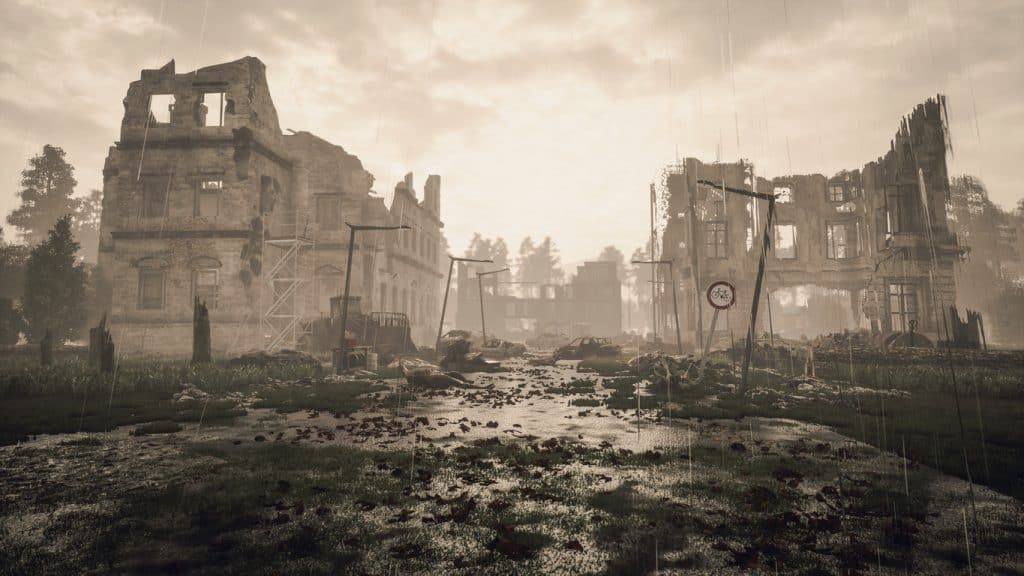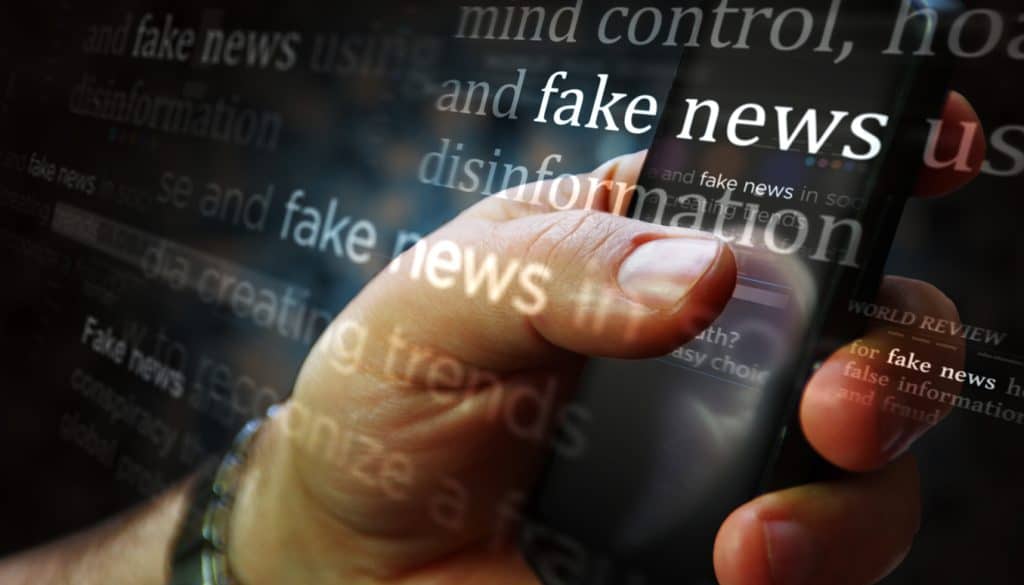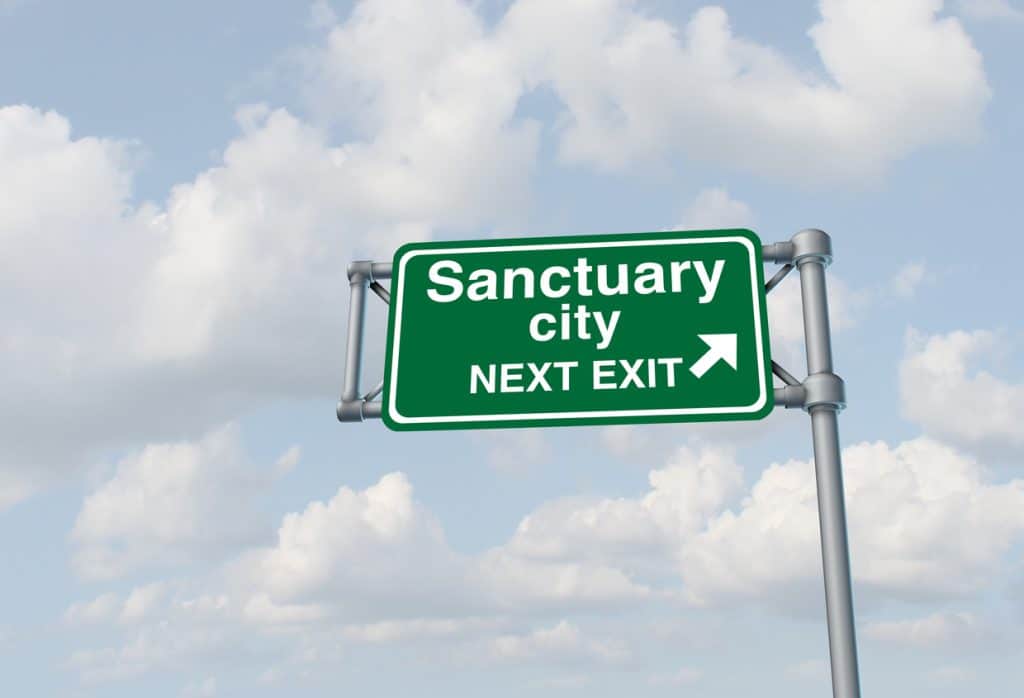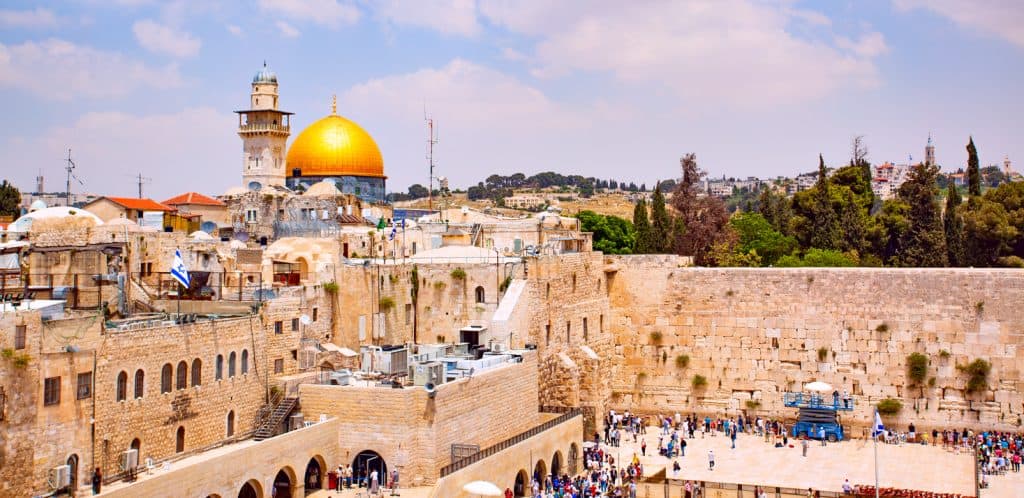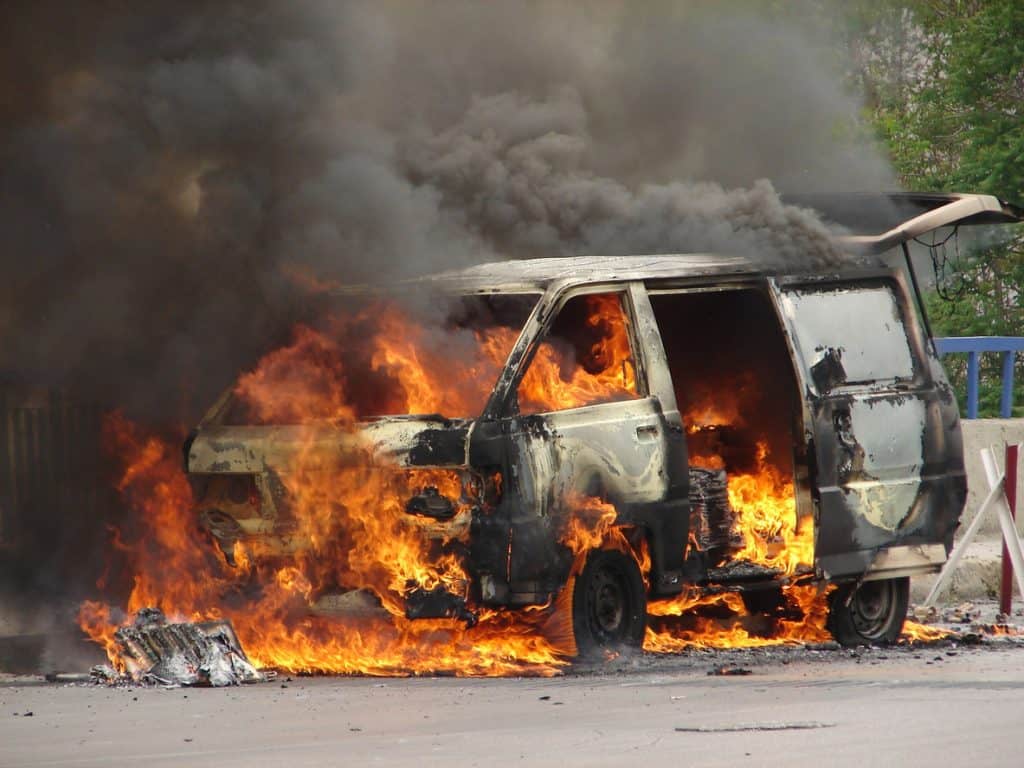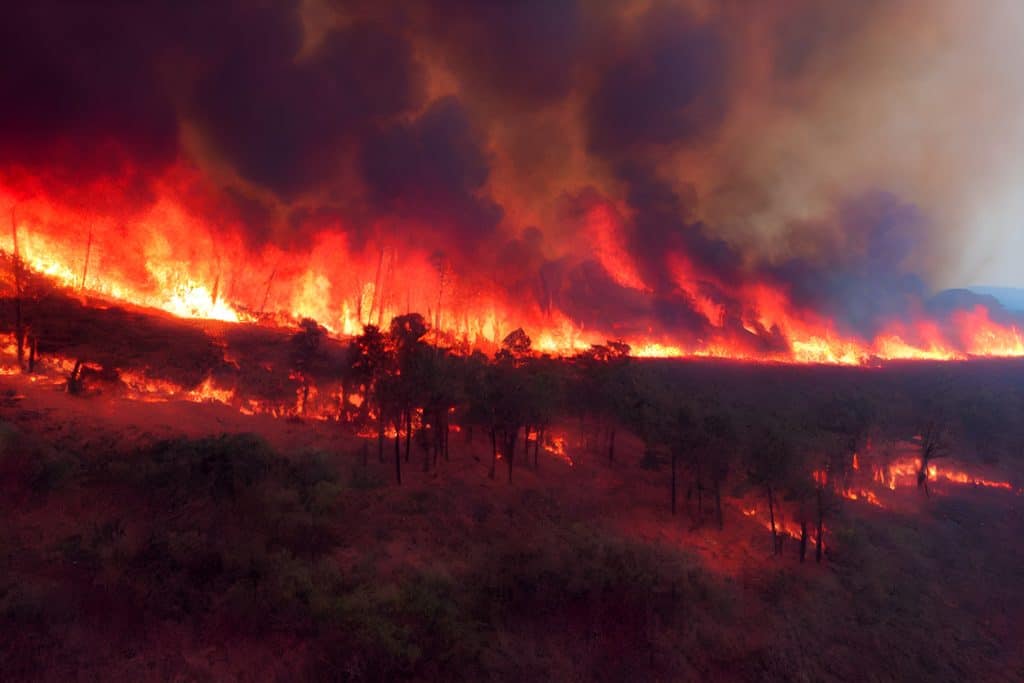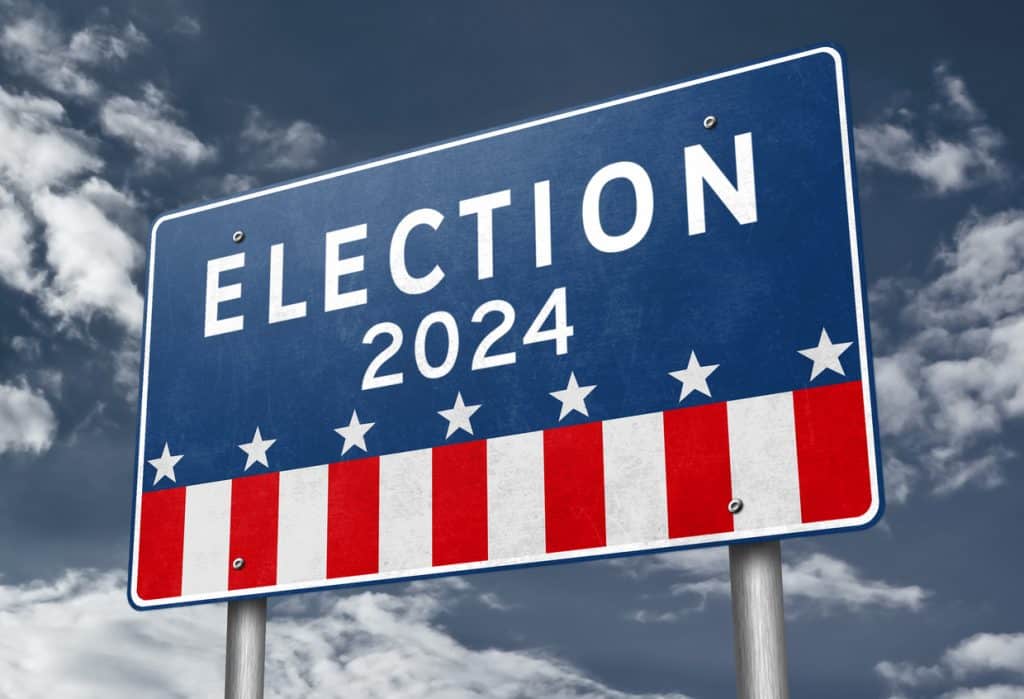The Importance of Preparedness: Lessons from Ongoing Global Events
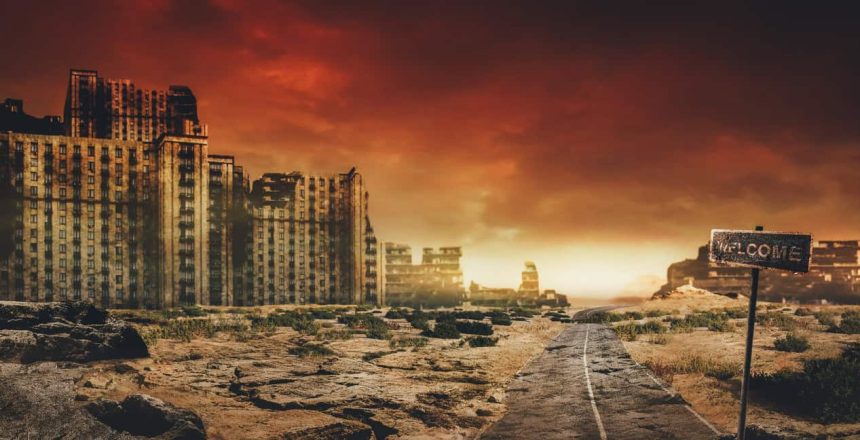
The Importance of Preparedness: Lessons from Ongoing Global Events
In a world where uncertainties abound, being prepared has never been more crucial. The ongoing wars in Ukraine and Israel, the impending U.S. elections, Wide open borders, natural disasters such as the solar flares during the solar maximum, and the societal shifts related to wokeness in the U.S. all underscore the necessity of having survival gear and a readiness mindset.
These diverse yet interconnected issues highlight the fragility of our daily lives and the importance of being equipped to face unexpected challenges. Whether or not you agree with everything written in this blog, these are very important topics to discuss. Please send us an email if you have any questions or comments.
Lessons from the Ongoing Wars
The conflict in Ukraine has been a stark reminder of how quickly situations can escalate and disrupt everyday life across the world. In Ukraine, the invasion by Russian forces has led to widespread destruction, countless deaths, and the displacement of millions. Many Ukrainians found themselves unprepared for the sudden need to flee or defend their homes, underscoring the importance of having essential survival gear ready at all times.
Similarly, the ongoing tensions and conflicts in Israel highlight the necessity of preparedness in a region where security threats are a constant concern. Civilians must have access to basic survival supplies, such as water, food, medical kits, and communication devices, to ensure their safety during sudden escalations.
The War in Ukraine: Unveiling the Corruption and Collusion Behind the Conflict
The war in Ukraine has been portrayed by mainstream media as a clear-cut case of Russian aggression against a peaceful neighbor. However, a closer examination reveals a more complex and disturbing picture. Ukraine’s long-standing corruption, the involvement of U.S. Politicians, and the media’s whitewashing of these truths play critical roles in understanding the origins and perpetuation of this conflict. It is essential to expose these underlying factors to grasp the full scope of the situation.
Ukraine: A Hotbed of Corruption
Ukraine has consistently ranked among the most corrupt countries in the world. Corruption permeates every level of its government and society, from local officials to the highest echelons of power. This corruption has created an environment ripe for exploitation and manipulation by both domestic and foreign actors.
For years, Ukrainian oligarchs have wielded enormous influence over the country’s politics, economy, and media. These oligarchs often engage in corrupt practices to maintain their power and wealth, contributing to a system where the rule of law is routinely undermined. This pervasive corruption has significantly weakened Ukraine’s political stability and economic prospects, making it vulnerable to external pressures and internal strife.
The Role of U.S. Politicians
The involvement of U.S. politicians in Ukraine’s affairs further complicates the narrative. High-profile figures within the Democratic Party have been linked to Ukrainian leaders and business interests, raising questions about their motivations and actions. For example, Hunter Biden’s involvement with Burisma, a notoriously corrupt Ukrainian gas company, and the ensuing controversy over his role and the influence of his father, then-Vice President Joe Biden, illustrates the deep connections between U.S. Democrats and Ukrainian elites.
These connections have fueled allegations of collusion and quid pro quo arrangements. Critics argue that U.S. politicians have worked in cahoots with Ukrainian leaders to advance their political and economic interests, often at the expense of transparency and accountability. This collusion has contributed to the perpetuation of corruption in Ukraine and has played a role in shaping the country’s geopolitical dynamics.
Media Whitewashing and Misinformation
Mainstream media has played a significant role in whitewashing the truth about Ukraine’s corruption and the involvement of U.S. Politicians. By selectively reporting on the conflict and focusing primarily on Russian aggression, the media has obscured the underlying issues that contribute to the war. This selective coverage has created a one-sided narrative that fails to address the complexities of the situation.
The media’s failure to scrutinize the corruption within Ukraine and the involvement of U.S. officials has led to a lack of accountability and transparency. This omission not only misinforms the public but also hinders efforts to address the root causes of the conflict. By not providing a complete and accurate picture, the media contributes to a distorted understanding of the war in Ukraine.
Unsecured U.S. Borders
- Easy Access for Terrorists: Our porous borders provide an easy entry point for those who wish to do harm. Terrorists can take advantage of the same routes used by illegal immigrants, bypassing the rigorous vetting processes in place for legal entrants.
- Smuggling Networks: The sophisticated networks used to smuggle people across the border can be exploited by terrorists. These networks, often run by criminal organizations, have the resources and know-how to bring individuals into the U.S. undetected.
National Security Risks
- Unknown Identities: Illegal immigrants often enter the country without any form of identification, making it impossible to verify their backgrounds or intentions. This anonymity is a perfect cover for terrorists.
- Potential for Sleeper Cells: There is a real risk that terrorists could use illegal immigration to establish sleeper cells within the U.S., lying in wait for an opportune moment to strike.
Historical Precedents
- Previous Attempts: There have been documented cases where individuals with ties to terrorist organizations have attempted to enter the U.S. illegally. This is not a hypothetical threat but a real and present danger.
- Global Examples: Other countries have experienced terrorist attacks perpetrated by individuals who entered illegally, underscoring the global nature of this threat.
Strain on Resources
- Law Enforcement Burden: The influx of illegal immigrants diverts resources from counterterrorism efforts. Border Patrol agents and other law enforcement personnel are stretched thin, making it harder to monitor and respond to potential terrorist activities.
- Financial Cost: The financial burden of managing illegal immigration detracts from funds that could be used for advanced security measures and intelligence operations.
Public Safety Concerns
- Increased Crime Rates: While not all illegal immigrants are involved in criminal activities, the presence of individuals who have evaded the law raises concerns about crime and public safety. Terrorists hiding among illegal immigrants exacerbate these fears.
- Terrorism and Violence: The potential for terrorist attacks within our borders creates an atmosphere of fear and insecurity, affecting the daily lives of American citizens.
Policy Imperatives
- Strengthening Border Security: Investing in physical barriers, advanced surveillance technology, and a larger Border Patrol presence is crucial. These measures act as the first line of defense against those who wish to exploit our borders for terrorist purposes.
- Enforcing Immigration Laws: Strict enforcement of existing immigration laws and closing loopholes that allow for illegal entry is necessary to protect national security.
- Comprehensive Immigration Reform: Addressing the root causes of illegal immigration, while ensuring that our legal immigration system is robust and secure, can help mitigate the risk of terrorist infiltration.
Double Standards: The World’s Hypocrisy in Judging Israel’s Right to Defend Itself
The tragic events of October 7th marked a significant escalation in the ongoing conflict between Israel and its adversaries. Following a heinous attack on Israeli civilians, Israel’s response has been met with widespread international criticism, exposing a troubling double standard in how the world views Israel’s right to defend itself. This inconsistency highlights a deeper bias and hypocrisy in global attitudes towards Israel, which undermines its sovereign right to protect its citizens.
The Attack on October 7th: A Catalyst for Conflict
On October 7th, Israel faced a brutal and unprovoked attack by terrorist organizations intent on causing maximum harm to Israeli civilians. The attack, which resulted in numerous casualties and widespread fear, was a blatant act of aggression aimed at destabilizing the region and terrorizing the Israeli populace. In response, Israel, like any sovereign nation under threat, launched defensive measures to protect its people and neutralize the threat.
The Global Response: A Tale of Hypocrisy
Despite the clear provocation and necessity of self-defense, the international community’s response has been overwhelmingly critical of Israel. Nations around the world, including many that routinely defend their own borders with force, have condemned Israel’s actions, accusing it of disproportionate responses and human rights violations. This criticism ignores the context of the conflict and the continuous threats Israel faces from hostile neighbors and terrorist organizations.
The Double Standard
The crux of the issue lies in the double standard applied to Israel compared to other nations. When countries like the United States, Russia, or China respond to terrorist attacks or threats to their national security, their actions are often viewed as justified and necessary. However, when Israel takes similar steps, it is subjected to intense scrutiny and condemnation.
This double standard is evident in several key areas:
- Right to Self-Defense: Israel’s right to defend itself is frequently questioned, whereas other nations’ defensive actions are generally accepted without significant controversy.
- Casualty Comparisons: The global community often highlights civilian casualties in conflicts involving Israel without acknowledging the complexities of urban warfare and the tactics used by terrorist organizations, such as using civilians as human shields. In Iraq & Afghanistan, hundreds of thousands of civilians were killed, yet somehow Israel is held to a different standard. Some estimates have civilian casualties at over 500,000.
- Media Bias: International media coverage often portrays Israel as the aggressor, focusing on the aftermath of its defensive actions rather than the provocations that necessitated them.
- Political Pressure: International bodies like the United Nations frequently pass resolutions condemning Israel while ignoring or downplaying the actions of terrorist groups and hostile nations.
In the current global landscape, it is crucial to confront uncomfortable truths about the threats facing Christianity and Judaism. A growing concern is the radical interpretations within the broad Muslim faith that wish to eradicate Christianity and Judaism completely, as some interpretations of the Quran advocate for such actions. As faithful conservatives, we must stand firm in defending our religious freedoms and the values that have shaped our civilization.
Radical Interpretations and the Threat to Christianity and Judaism
While many Muslims around the world practice their faith peacefully, it is undeniable that radical elements within Islam have expressed violent intentions towards Christians and Jews. These radical interpretations, rooted in certain passages of the Quran, have been used to justify persecution, violence, and terrorism against non-Muslims.
The Quran and Radical Interpretations
Certain verses in the Quran have been interpreted by radicals to support the idea of eradicating other faiths:
Verses of Conflict: Passages such as Surah 9:29, which speaks of fighting those who do not believe in Allah, have been used by extremists to justify violence against non-Muslims. These interpretations are often taken out of historical context to support modern-day agendas of intolerance and violence.
Supremacist Ideologies: Radical leaders and groups have propagated the belief that Islam should dominate all other religions, leading to actions aimed at subjugating or eliminating Christians and Jews.
Calls for Jihad: The concept of jihad, or holy struggle, has been manipulated by extremists to promote a violent and aggressive approach to spreading Islam and eradicating other faiths.
The Impact of Natural Disasters
Natural disasters are another compelling reason to prioritize preparedness. The solar maximum, a period of heightened solar activity, poses significant risks to our technology-dependent society. Solar flares can disrupt communication networks, power grids, and satellite operations, potentially leading to widespread blackouts and a breakdown of essential services.
Being prepared for such events means having a reliable backup plan. This includes maintaining a stock of non-perishable food, clean water, alternative power sources, and communication tools that do not rely on modern infrastructure. By doing so, individuals can ensure their safety and well-being even when modern conveniences fail.
The Modern Electrical Grid: A Weak Link
The modern U.S. electrical grid is a highly complex and interconnected system, making it particularly susceptible to the effects of solar flares. Here are several reasons why the grid is vulnerable:
- Aging Infrastructure: Much of the U.S. electrical grid was built decades ago, with many components nearing or exceeding their intended lifespans. This aging infrastructure is less resilient to the intense electromagnetic pulses (EMPs) generated by a solar flare.
- High Voltage Transformers (HVTs): HVTs are critical components of the electrical grid, responsible for stepping up and down voltage levels. These transformers are particularly vulnerable to geomagnetic induced currents (GICs) that can be produced by solar storms. Damage to these transformers can lead to prolonged outages, as replacements are costly and time-consuming to manufacture and install.
- Interconnectedness: The interconnected nature of the grid means that a failure in one area can quickly propagate, causing widespread blackouts. A solar flare could induce currents that overload and damage multiple transformers simultaneously, leading to cascading failures across the grid.
- Lack of Preparedness: Despite warnings from scientists and engineers, comprehensive measures to protect the grid from solar flares have not been widely implemented. Efforts to harden infrastructure and install protective devices have been slow and insufficient.
Navigating the Uncertainty of Upcoming U.S. Elections
The upcoming U.S. elections add another layer of uncertainty. The political climate in the United States has been increasingly polarized, and the potential for civil unrest or disruptions around election time is a genuine concern. Being prepared for such eventualities involves not only physical preparedness but also mental and emotional readiness.
Having a well-thought-out plan that includes safe locations to retreat to, communication strategies with loved ones, and essential supplies can help individuals navigate periods of instability. Awareness of local resources and community support networks also plays a crucial role in maintaining safety and security during turbulent times.
The political climate in the United States has become increasingly polarized, raising concerns about the potential for civil unrest, or even civil war, especially surrounding the upcoming elections. This division, fueled by intense ideological differences, a contentious media landscape, and deep mistrust in electoral processes, has the nation on edge. From a conservative perspective, it’s crucial to address these tensions and work towards preventing such a catastrophic outcome.
Political Polarization and Ideological Divide
The United States is experiencing an unprecedented level of political polarization. The ideological divide between conservatives and liberals has widened, making compromise and civil discourse increasingly rare. Key issues such as immigration, gun control, healthcare, and social policies have become flashpoints that drive deeper wedges between the two sides.
Conservatives see this divide as not just political but cultural, with fundamental disagreements on the values that should guide the nation. The rise of identity politics and the push towards progressive policies by the left have left many on the right feeling alienated and under attack. This cultural war feeds into the political polarization, creating a climate ripe for conflict.
Erosion of Trust in Electoral Processes
Trust in the electoral process is a cornerstone of any stable democracy. However, recent U.S. elections have been marred by allegations of fraud, voter suppression, and other irregularities. For many conservatives, the 2020 presidential election serves as a prime example of this erosion of trust. Claims of widespread voter fraud and a lack of transparency have led to a significant portion of the population questioning the legitimacy of election outcomes.
This distrust is not limited to one side. Both conservatives and liberals have expressed concerns about the integrity of the electoral process, albeit for different reasons. The result is a growing skepticism about whether elections can be conducted fairly and whether their outcomes can be trusted. This skepticism can lead to unrest, as groups may refuse to accept election results they perceive as illegitimate.
The Role of Media and Social Media
The media landscape has contributed significantly to the current polarization. Mainstream media outlets often present biased coverage, catering to their respective audiences’ ideological leanings. This selective reporting exacerbates divisions by creating echo chambers where individuals are only exposed to information that reinforces their existing beliefs.
Social media amplifies this effect by spreading misinformation and enabling the rapid organization of like-minded groups. The virality of contentious issues can quickly escalate tensions, leading to protests, riots, and other forms of civil unrest. Conservatives are particularly concerned about the censorship and bias exhibited by major social media platforms, which they believe stifles free speech and marginalizes conservative viewpoints.
Defending Faith: The Attack on Christians and the Effort to Remove God from American Life
In recent months, we have witnessed a troubling increase in attacks on Christians and efforts to erase God from public life in the United States. These developments are not just isolated incidents but part of a broader assault on the religious freedoms and values that have long been the bedrock of our nation. As a strong and faithful conservative, it is essential to confront these challenges head-on, defend our faith, and uphold the principles that define our identity as Americans.
Rising Attacks on Christians
The attacks on Christians are becoming more frequent and more violent. Churches across the country have been vandalized, with sacred symbols desecrated, statues destroyed, and properties damaged. These acts of vandalism are not just criminal offenses; they are direct attacks on our faith and the values we hold dear.
Christians are also facing increasing harassment and discrimination in various settings, including workplaces, schools, and public forums. This harassment includes verbal abuse, physical assaults, and discriminatory practices that undermine the freedom of religion guaranteed by our Constitution. These attacks are part of a broader effort to silence Christian voices and marginalize our faith in society.
The Push to Remove God from Public Life
Alongside these direct attacks, there is a concerted effort to remove references to God and religious symbols from public life. This secularization is manifesting in several ways:
- Legislative and Judicial Actions: Legal challenges are being brought forward to remove religious symbols and practices from public institutions. Court rulings have led to the removal of Ten Commandments displays from courthouses, the prohibition of prayer in schools, and restrictions on religious expressions in public spaces.
- Educational Policies: Schools are increasingly excluding religious content from curricula and promoting secular worldviews. This includes the removal of religious holidays from school calendars, restrictions on students expressing their faith, and the promotion of ideologies that conflict with traditional Christian values.
- Cultural Shifts: The media and entertainment industries frequently portray Christianity in a negative light. Popular culture ridicules or dismisses religious beliefs, contributing to a societal shift away from faith and towards secularism.
- Government Policies: Some government actions prioritize secular values over religious freedoms. Regulations that compel religious institutions to act against their beliefs, such as mandates on healthcare and education, infringe on our religious liberty.
The Silencing of Truth
One of the most concerning developments is the suppression of historical and religious truths. Recently, it has become unacceptable to state that Jesus was killed by Jewish people, a historical fact recorded in the Gospels. This attempt to rewrite history and silence truth is part of a broader effort to undermine the foundations of the Christian faith.
The Societal Disease of Progressive Wokeness: A Threat to Our Way of Life
Progressive wokeness, once a fringe ideology, has now infiltrated nearly every facet of American life, posing a significant threat to our traditional values, freedoms, and way of life. This radical ideology, masquerading as a quest for social justice, has become a societal disease, undermining the very principles that have made our nation strong and prosperous. As conservatives, it is imperative that we recognize and combat this insidious movement to preserve our cultural and societal integrity. A great book to read on this subject is called “The Parasitic Mind: How Infectious Ideas are Killing Common Sense”.
The Rise of Wokeness
Wokeness, in its current form, emerged from progressive academia and quickly spread to mainstream media, corporate culture, and government institutions. It is characterized by an obsessive focus on identity politics, victimhood, and an ever-expanding list of perceived injustices. This ideology seeks to divide society into oppressors and oppressed based on immutable characteristics such as race, gender, and sexual orientation, rather than promoting individual merit and responsibility.
The Dangers of Wokeness
- Erosion of Free Speech: Wokeness has led to the censorship and silencing of dissenting opinions. Cancel culture, where individuals are ostracized and punished for expressing views contrary to progressive orthodoxy, has stifled free speech and open debate. This culture of fear prevents honest discussion and critical thinking, essential components of a healthy democracy.
- Undermining Meritocracy: By prioritizing identity over merit, wokeness undermines the principles of hard work, talent, and personal achievement. Affirmative action and diversity quotas, while well-intentioned, often result in mediocrity and resentment. A society that rewards identity over competence cannot thrive or innovate effectively.
- Historical Revisionism: Wokeness promotes a revisionist view of history that portrays America as inherently evil and oppressive. This narrative ignores the nation’s achievements and the progress made over centuries. By erasing or vilifying historical figures and events, wokeness fosters a sense of guilt and shame rather than pride and unity.
- Weakening National Identity: The emphasis on identity politics fractures national unity. Instead of fostering a shared sense of purpose and belonging, wokeness promotes division and antagonism between different groups. This undermines the cohesive national identity necessary for a strong and resilient society.
- Economic Disruption: Woke policies in the corporate world, such as ESG (Environmental, Social, and Governance) criteria, often prioritize social justice over profitability and efficiency. This can lead to poor business decisions, reduced competitiveness, and economic stagnation. Additionally, the push for radical environmental policies without considering economic impacts can harm industries and livelihoods.
- Education Indoctrination: Wokeness has infiltrated the education system, where children are taught to view themselves and others primarily through the lens of race and identity. This indoctrination fosters division and resentment from a young age and distracts from essential academic subjects and critical thinking skills.
Essential Survival Gear for a Prepared Life
Given the diverse range of potential crises, having a well-stocked and versatile survival kit is essential. Some key items to include are:
- Water and Water Purification: Clean water is crucial. Include bottled water, water purification tablets, and portable filters.
- Non-Perishable Food: Stock up on canned goods, dried fruits, nuts, and other long-lasting food items.
- First Aid Kit: A comprehensive medical kit with bandages, antiseptics, medications, and emergency medical supplies.
- Communication Devices: Battery-powered or hand-crank radios, walkie-talkies, and backup chargers for mobile devices.
- Alternative Power Sources: Solar chargers, portable generators, and extra batteries.
- Personal Safety Items: Flashlights, multi-tools, fire starters, and personal defense items.
- Important Documents: Copies of identification, medical records, and essential contacts, stored in a waterproof container.

